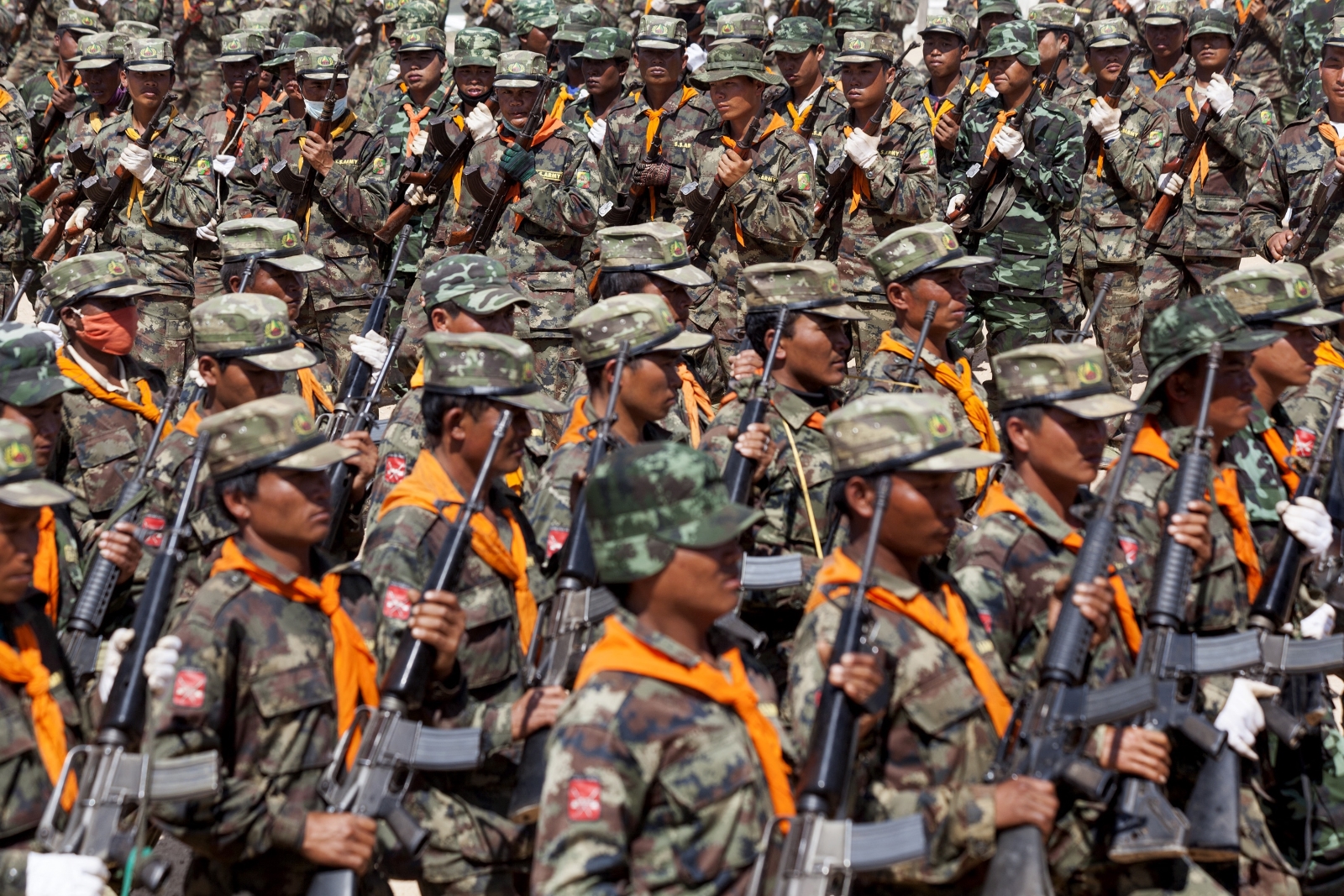By AFP
YANGON — Eight people were killed Sunday when fighting broke out on the outskirts of Muse, a region long plagued by ethnic rebel insurgencies.
The clashes are another blow State Counsellor Daw Aung San Suu Kyi’s hopes of forging a nationwide peace agreement after years of war in Myanmar’s many ethnic minority border regions.
Locals in the town of Muse, a hotbed of smuggling, reported that fighting began in the early morning.
“People from the border checkpoint are now fleeing to Muse because of heavy fighting,” Aye Aye, a resident of the town, told AFP.
Support more independent journalism like this. Sign up to be a Frontier member.
In a statement later on Sunday, Suu Kyi’s office said eight people were killed in the fighting — one soldier, three police officers, one pro-government militia fighter and three civilians.
A hospital worker in Muse told AFP two civilians died after arrival from bullet wounds.
Fighting between Myanmar’s military and the Kachin Independence Army in Kachin State, which reignited in 2011 after the collapse of a 17-year ceasefire, has displaced around 100,000 people and spilled over into parts of neighbouring Shan State.
Muse lies in the north of Shan, not far from Kachin, and is separated from China by a river.
Two rebel representatives confirmed their troops were involved in the clashes.
“We are fighting together with our alliance of ethnic armed groups,” Khine Thu Kha, from the Arakan Army, told AFP.
The rebels said the groups involved included the powerful KIA, the Arakan Army, the Ta’ang National Liberation Army and the Myanmar National Democratic Alliance Army.
The latter three have not been invited to the current or last round of peace talks.
One of Aung San Suu Kyi’s priorities is a peace deal with the patchwork of armed minorities fighting the state.
But continuing fighting in Kachin and Shan states overshadowed the peace talks and it is expected to take years to end the complex conflicts.
In September renewed clashes broke out in southern Karen State between the military and rebels. The northern half of the western state of Rakhine is currently under a military lockdown after a string of deadly attacks against border posts last month.
More than 30,000 people have been displaced and at least 70 people killed in the latest fighting in Rakhine.
Myanmar’s military has a long history of rights abuses that has fostered a deep mistrust among ethnic minorities of the central government.
Aung San Suu Kyi also has limited control over the army which retains 25 percent of parliamentary seats as well as key defence and security positions in government.






